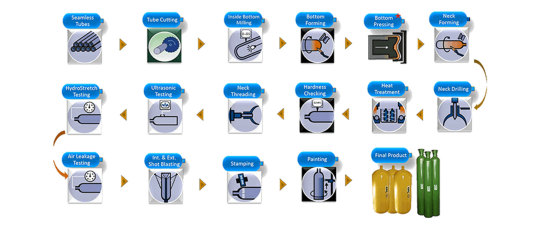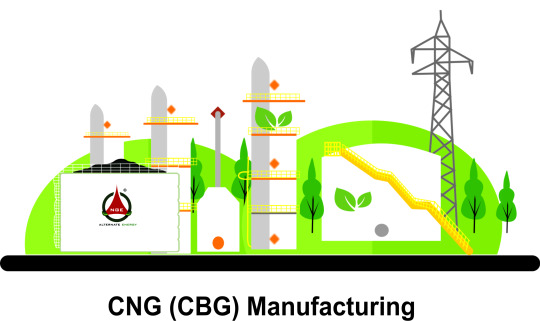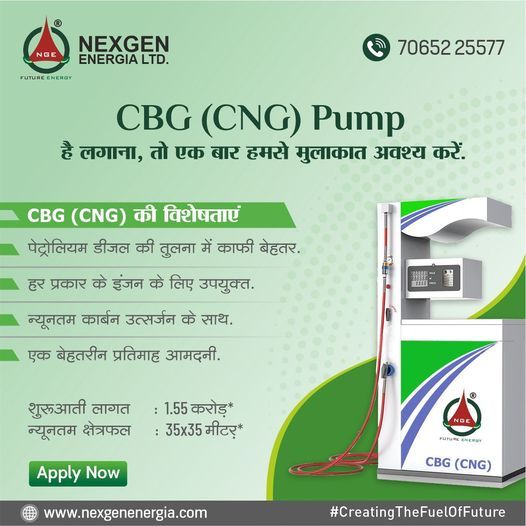#SATAT Scheme
Explore tagged Tumblr posts
Text
SATAT Scheme: Promoting Sustainable Energy through Compressed Biogas
SATAT Scheme: Promoting Sustainable Energy through Compressed Biogas
The Sustainable Alternative Towards Affordable Transportation (SATAT) Scheme, launched by the Government of India, is a forward-thinking initiative aimed at promoting the use of Compressed Biogas (CBG) as an alternative fuel for the transportation sector. This scheme is designed to enhance the country’s energy security, reduce carbon emissions, and generate employment opportunities, particularly in rural areas.
What is the SATAT Scheme?
The SATAT Scheme, launched in 2018, encourages entrepreneurs to set up CBG production plants and provides them with the framework to market the gas to the public through Oil Marketing Companies (OMCs). CBG, produced from organic waste such as agricultural residue, cattle dung, and municipal solid waste, serves as a renewable source of energy and helps manage waste more efficiently.
Key Objectives of the SATAT Scheme:
Promotion of Renewable Energy: By encouraging the production and consumption of CBG, the scheme aims to reduce dependency on fossil fuels and promote renewable energy sources.
Waste Management: The production of CBG involves the use of organic waste, helping to reduce environmental pollution and manage waste effectively.
Employment Generation: The scheme provides opportunities for rural entrepreneurs and farmers by creating jobs in setting up and managing biogas plants.
Reducing Carbon Emissions: The use of CBG contributes to lower greenhouse gas emissions compared to conventional fuels, supporting India’s climate change commitments.
Benefits of the SATAT Scheme:
Energy Security: By diversifying fuel sources with CBG, India can reduce its dependence on imported oil and improve its energy security.
Economic Boost to Rural Areas: Farmers and entrepreneurs can benefit financially by setting up CBG plants, selling CBG to OMCs, and contributing to local economies.
Sustainable Transportation: CBG is a cleaner alternative to traditional fuels and is used in CNG vehicles, providing an eco-friendly option for transportation.
The SATAT Scheme is a win-win initiative, promoting clean energy, enhancing rural development, and providing sustainable solutions for India’s growing energy needs. By making compressed biogas more accessible, the SATAT Scheme paves the way for a greener and more self-reliant India.
0 notes
Text
STORAGE OF RENEWABLE ENERGY [CNG] AT HIGH PRESSURES

In 2022, India became the fourth largest country in the world by valuation of the automotive industry. With this massive influx of automobiles, India is leaning towards Compressed Natural Gas (CNG) as a significant renewable energy variant. CNG as a fuel helps curtail emissions from traditional fuels such as diesel and petrol. India’s projected sales of CNG vehicles will increase from 863.22 thousand units in 2021 to 1,463.46 thousand units by 2029.
Government Initiatives to Promote CNG Vehicles:
Individual states are investing heavily to build a CNG infrastructure.
Keeping the price of CNG lower than traditional fuels prompt customers to see it as a cost-saving option.
SATAT Scheme for producing automobile-grade CNG from biogas generated from waste.
The segment was dominated by passenger vehicles; sales of CNG accounted for 12.1 percent of sales at 177,410 units as against 120,070 units in 2021; carmakers are betting on CNG in a big way as it gives owners a more affordable driving option. The top CNG car manufacturers are Maruti Suzuki, Tata Motors, Hyundai, Bajaj & Mahindra.
Infrastructure:
One of the critical elements to support this boost in sales will be technology in the form of safer storage for this flammable gas at higher pressures. CNG is stored at 250 barg pressures in the cascades at filling stations and transferred into smaller cylinders, cars, buses, etc.
CNG Cylinder Types and Manufacturers:
CNG tanks can be categorized into Type 1, Type 2, Type 3, and Type 4. The type is determined primarily based on design, production method, and liner material. Generally, in India, Type 1 Cylinder comprises all steel, which is relatively economical and heavier. The varying capacity of 30 L, 60 L, and 90 L cylinders are used in 3-wheelers, cars, trucks, and buses.

Use of Compressor:
A high-pressure compressor is used in a very critical stage of the manufacturing process. The air leakage test is one of the final, conclusive tests wherein the cylinder's integrity is checked before it is given a clean chit for dispatch. Compressed air at 400 barg pressures and 200 m3/hr flows are generally required for the process.
COMPRESSORS SOLUTIONS FROM ELGI SAUER RANGE FOR CNG CYLINDER TESTING APPLICATION:

Suction pressure: max. 16 bar g Final pressure: max. 500 bar g Volume Flow Rate: max. 500 m3/ h Rated Power: max. 75 kW for Air
ORKAN series compressors are based on a flexible modular system and cover a wide output range.
High-pressure air compressors up to 500 barg
Real gas boosters with inlet pressures of up to 16 barg
Hermetically gas-tight designs with magnetic coupling
Standard products for air, nitrogen, helium, CNG, and hydrogen
Ex-proof versions acc. to ISO 80079-34:2018 and the European ATEX directive 2014 / 34 / EU
Magnetic coupling drives for Gas Boosters.
Orkan gas boosters feature Sauer's first magnetic coupling drive for hermetically gas-tight compressors. It guarantees absolute gas tightness, is extremely low maintenance, and operates with maximum reliability.
CubeCooler
The new CubeCooler enables re-cooling temperatures more than 30% lower than conventional cooler configurations. Coolers have been arranged radially around the combined fan and flywheel for a high cooling capacity like this.
for visit : https://www.elgisauer.com/blogs/storage-of-renewable-energy-cng-at-high-pressures/
0 notes
Text
The Sustainable Alternative Towards Affordable Transportation (SATAT)
The Sustainable Alternative Towards Affordable Transportation (SATAT) Scheme's Bio-CNG component revolutionizes India's energy landscape. By converting organic waste into Compressed Bio-Gas (CBG), this eco-friendly fuel offers a sustainable alternative to traditional fuels. SATAT's support for decentralized CBG production units promotes local waste management solutions, aligning with a circular economy model. Bio-CNG, a byproduct of organic waste, not only reduces carbon emissions but also contributes to cleaner air and a greener environment. SATAT Scheme's commitment to Bio-CNG reflects a visionary approach, fostering a sustainable future for India's transportation sector and addressing waste management challenges.
0 notes
Text
0 notes
Text
Nexgen Energia is providing CNG/CBG Pump dealership in India

What is Bio CBG (Compressed Biogas)? What are its benefits?
Biogas is an environment-friendly renewable energy source. The gas is produced naturally through a process that breaks organic matter like municipal solid waste, animal waste, sugarcane press mud, industrial bio-waste, and agricultural biomass and converts it into Biogas, which can be used as an automobile fuel, industry gas, and electricity in the market.
With the aim to reduce greenhouse gas emissions and making more our nation environment-friendly, Government of India has introduced many key government programs like SATAT scheme, Waste to energy program, National policy of Bio-fuel, Biogas scheme to have a green planet, developing rural economy while enhancing farmer’s income, Reduction in Crude and LNG imports thereby huge savings in forex, utilisation of domestic feedstock to produce biofuels, climate change mitigation, introducing upgrading technology to generate biofuels, and enabling India to create more employment and business opportunities.
Is CNG pump profitable in India?
The Compressed Biogas (CBG) market is expected to grow from USD 1.47 billion in 2022 to USD 2.25 Billion in 2029 at a CAGR of 6.3% in the 2022- 2029 period, in India. As per Oil and Natural resources minister, India will receive Rs 2 Lakh in investment to develop 5000 biogas plants by 2023-24.
Why to invest in Bio CBG plants of NGE?
Nexgen Energia has created a future roadmap for converting waste to energy India and making our planet energy independent by introducing a concept of CBG (Compressed Bio Gas).
The company has already been acknowledged for providing best entrepreneurial opportunities in clean fuel energy, world-class team to assist startups, extensive branding and marketing, committed to the partner's growth along with a successful business module.
NexGen Energia is India’s fastest growing integrated clean fuel energy company with its vision to redefine the manufacturing & distribution of alternate future energy sectors. The company has its major presence in almost all the streams including license for CNG/CBG production, green diesel production & its retail outlet distribution, Bio coal, EV charging station, Lubricants, etc. a high caliber team, state- of- the- art technologies, and cutting-edge R&D, quality consciousness, and transparency; creating an ecosystem where all energy in all its forms is tapped most responsibly and delivered to the consumers/stakeholders most affordably. The company lines up with a massive expansion plan to launch 40,000 production plants & retail outlets on CBG on the DODO Model by 2027 which is aligned with the SATAT (Sustainable Alternative towards Affordable Transportation) scheme initiated by the Government of India.
1 note
·
View note
Text
SATAT Scheme: Transforming Waste into Wealth with Bio-CNG
The SATAT (Sustainable Alternative Towards Affordable Transportation) scheme, launched by the Government of India, is a visionary initiative aimed at promoting the use of Bio-CNG (Compressed Natural Gas) as a sustainable alternative fuel. This scheme addresses the twin challenges of managing organic waste and reducing dependency on fossil fuels.
What is Bio-CNG?
Bio-CNG is a renewable fuel produced from biomass, including agricultural residues, municipal solid waste, and other organic materials. Through anaerobic digestion, these organic wastes are converted into biogas, which is then purified to produce Bio-CNG. This eco-friendly fuel has properties similar to natural gas and can be used in vehicles designed for CNG, providing a green alternative to conventional fuels.
Objectives of the SATAT Scheme
Waste Management: The SATAT scheme aims to convert organic waste into valuable energy, thus addressing waste management issues and reducing environmental pollution.
Energy Security: By promoting Bio-CNG, the scheme reduces India's reliance on imported fossil fuels, enhancing energy security.
Rural Development: Establishing Bio-CNG plants in rural areas creates employment opportunities and supports the local economy.
Benefits of Bio-CNG
Environmental Impact: Bio-CNG significantly reduces greenhouse gas emissions, contributing to climate change mitigation.
Cost-Effective: As a renewable source of energy, Bio-CNG can lower fuel costs over time.
Health Benefits: Using Bio-CNG reduces air pollution, leading to better public health outcomes.
Implementation and Impact
Under the SATAT scheme, public sector oil marketing companies (OMCs) are inviting entrepreneurs to set up Bio-CNG production plants and offer a ready market for their output. This public-private partnership model ensures the scheme's sustainability and scalability. With over 5,000 Bio-CNG plants planned by 2025, the SATAT scheme aims to produce 15 million tonnes of Bio-CNG annually, significantly boosting India's clean energy landscape.
Conclusion
The SATAT scheme is a forward-thinking initiative that turns waste into wealth by promoting Bio-CNG. It not only addresses waste management and energy security but also drives rural development and environmental sustainability. As India moves towards a greener future, the SATAT scheme represents a crucial step in achieving sustainable and affordable transportation.
1 note
·
View note
Link
SATAT Scheme - By Samiksha - Analog IAS Institute Analog Provides the Best Coaching for Civil Services All Over India. We also provide coaching for APPSC , TSPSC and KPSC-KAS with the Best Faculty & Study Materials in India. Do watch our videos on Civil Services general studies and optionals subjects. Branches & Contact Detials for Analog IAS Institute Across India: Hyderabad : Indira Park, Ph: 040-27620440,9912441137, Email: [email protected] Hyderabad : Ashok Nagar, Ph: 8121046686,9912441138, Email: [email protected] Hyderabad : Madhapur, Ph: 040 - 48522831,9908564438, Email: [email protected] New Delhi: Ph: 011- 49785868,8800283132, Email: [email protected] Vizag, Ph: 0891- 2546686,9985136789, Email: [email protected] Guntur, Ph: 9963356789, Email: [email protected] Bengaluru, Ph: 9491159900, Email: [email protected] Website : https://www.analogeducation.in Like us on FB: https://www.facebook.com/analog.ias.i... Contact Now @ http://www.analogeducation.in/contact-us Subscribe Our Youtube Channel here: https://www.youtube.com/channel/UCagH... we provide best ias coaching in india. Take ias coaching with analogeducation. ips training,online ias coaching also available. analog is the best ias training centre in india. we are one of the top ias coaching in india. ias online coaching. upsc coaching. best coaching for ias. online coaching for ias. upsc online coaching in hyderabad. Analog Education Society was established with an aim to impart quality education both in terms of technical skills and all-round personality development. The first initiative was the establishment of ANALOG IAS INSTITUTE for aspirants preparing for Civil Services Examination conducted every year by Union Public Service Commission(UPSC). Founded in 2002, analog ias institute has the distinction of producing All India toppers with its quality and effective teaching methodologies. This website is meant for those aspirants with a strong desire to be part of the most coveted Civil Services and contribute the best to public life. Mr. Srikanth Vinnakota, Director of the institute, himself an M.Tech in Mechanical Engineering, qualified for Civil Services Interview thrice with Mathematics and Psychology as Optionals. He has the distinction of producing All India Rank - 1(Revu Muthyala Raju) in Civil Services 2006 and here trained from the top IAS Coaching in Hyderabad, that is analog IAS. This is first ever AIR - 1 from both Telugu States. "Srikanth Sir gave me a direction for my preparation” are the words of Mr. Revu Muthyala Raju and thanked his mentor in one of the largest gathered Seminars conducted at Domalguda, Hyderabad.
0 notes
Text
SATAT Scheme Subsidy: Transforming Waste into Energy
Waste management has taken a revolutionary turn in India with the introduction of the Sustainable Alternative Towards Affordable Transportation (SATAT) Scheme. At the core of this transformative initiative is the SATAT Scheme Subsidy, a financial incentive designed to turn organic waste into a valuable energy source - Compressed Bio-Gas (CBG).
The subsidy program plays a pivotal role in encouraging the establishment of CBG production units, especially those that utilize organic waste as feedstock. By subsidizing the production costs, the government aims to make CBG economically competitive with traditional fuels, creating a sustainable solution for waste management and energy needs.
One of the notable aspects of the SATAT Scheme Subsidy is its focus on decentralized production units. This approach not only addresses local waste management challenges but also empowers communities to actively participate in the clean energy transition. It opens avenues for entrepreneurs, local bodies, and businesses to contribute to both environmental conservation and economic development.
Moreover, the subsidy promotes circular economy principles by converting waste into a valuable resource. Organic waste, which would otherwise contribute to landfills and environmental degradation, becomes a feedstock for CBG production. This not only reduces the burden on conventional waste disposal systems but also mitigates the environmental impact of organic waste.
In conclusion, the SATAT Scheme Subsidy is a game-changer in India's quest for sustainable energy solutions. By transforming waste into energy, this subsidy not only addresses environmental concerns but also creates economic opportunities, aligning with the nation's commitment to a cleaner and more sustainable future.
0 notes
Link
4th June 2021 GK, Daily Current Affairs.1.Recently reported H10N3 is a strain of which disease?2.Who has launched the SATAT scheme?
0 notes
Text
5000 ORGANIC WASTE TO BIO CNG PLANTS IN INDIA, TO COME UP BY 2023 SAYS INDIAN PETROLEUM MINISTER
According to a recent press release, the Indian Petroleum Minister, Mr. Dharmendra Pradhan, has stated that there would be 5000 plants that would be coming up, utilizing organic waste to produce Compressed Biogas (CBG), also known as BioCNG. This move was initiated under the Sustainable Alternative Towards Affordable Transportation (SATAT) scheme that was introduced in October 2018
For more information, click here.
In the wake of the SATAT BioCNG / CBG wave, Mailhem Ikos is already set to race to help potential investors by constructing BioCNG plants. One such plant is the 15 TPD BioCNG plant made for the Indore Smart City Development Ltd (ISCDL) which is based on Segregated Municipal Organic Waste. The BioCNG generated by our plant is used by the ISCDL as a fuel for the buses. Thus, supporting green energy for the future.
Are you looking to manage large scale organic waste to produce BioCNG?
If yes,
Contact Mailhem Ikos - your partner in providing solutions to produce green energy since 1995.
municipal solid waste management in india
electricity from waste
Contact Details:
Website:https://www.mailhem-ikos.com/
Email: [email protected]
Phone No.: 020 2553 2228 / +91 9373-597-455
#Waste-to-Energy Plant#Municipal Solid Waste Management In India#waste management in india#electricity from waste#Digester Biogas
0 notes
Text
Satat Jivikoparjan Yojana Bihar - Job Scheme for Liquor Brewers
Satat Jivikoparjan Yojana Bihar – Job Scheme for Liquor Brewers
The state government of Bihar has launched a new job scheme named Satat Jivikoparjan Yojana for the poor families who were depended on liquor and toddy sale. Nitish kumargovernment had banned all type of liquids in the state so a huge number of families got unemployed. Now the families who were engaged in the selling of liquor and toddy will be provided job under a new scheme Satat Jivikoparjan…
View On WordPress
0 notes
Text

Apply Now- NexGen Energia company is offering to open CNG(CBG) Plant Franchise/Dealership
Nexgen Energia is providing a chance to all entrepreneurs, and business aspirants to become a manufacturer of CNG(CBG) Plant Dealership pan India. NexGen Energeia’s business projects are diversified to CBG(CNG) Plant/CBG production plant, CBG(CNG) Plant Dealership, Bio-coal, EV charging, etc. The business project is Based on the Government's SATAT scheme.
For any Information/Querry please Contact us nexgenenergia.com or call 8800599662
#bio cng#bio cng plant#bio cng plant cost#bio cng plant manufacturer in india#bio cng plant subsidy#bio cng plant cost in india#cbg plant#cbg gas#cbg production plant#cng gas agency
0 notes
Text

Apply Now- Nexgen Energia is providing CBG(CNG) Pump dealership
Apply now for CNG/CBG Pump Dealership. Nexgen Energia is helping entrepreneurs, business aspirants, to provide dealerships BioCNG retail outlets pan India. NexGen Energeia’s business projects are diversified to CNG/CBG production, CBG retail outlets, green diesel production, green diesel retail outlets, bio-coal, EV charging, etc. Nexgen Energia is providing CNG/CBG Pump dealership in India.The business project Based on Government’s SATAT scheme.
For any Information/Querry please Contact us [email protected]
CONTACT NO- 7065225577
#Nexgenenergia#biocng#cbg#creatingthefueloffuture#futureenergy#nge#NX100#cngpump#cngretailoutlet#cbgplant#biogas#biocngplant#cbgmanufacturingplant#biocoal#ethanol
0 notes

